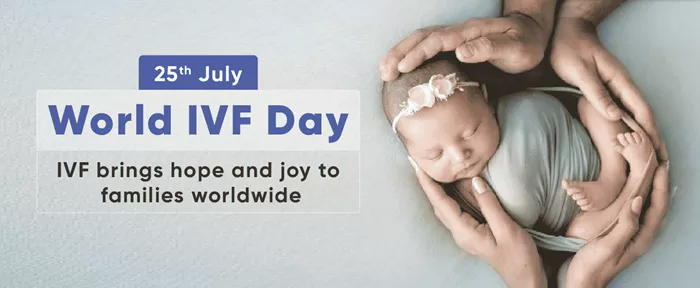Understanding ovulation is crucial for individuals trying to conceive or managing their reproductive health. Ovulation is the process during which an ovary releases an egg, making it available for fertilization. This process is a key component of the menstrual cycle and timing intercourse around ovulation can significantly impact the chances of conception. One common question that arises is whether there is a specific time of day when ovulation occurs. This article explores the science behind ovulation timing and addresses whether the time of day plays a role in the ovulation process.
Introduction to Ovulation
1. What is Ovulation?
Ovulation is a part of the menstrual cycle where a mature egg is released from one of the ovaries. This usually occurs around the middle of the cycle. The released egg travels through the fallopian tube, where it can meet sperm and become fertilized.
2. Timing of Ovulation
Ovulation typically occurs about midway through a 28-day menstrual cycle. For example, in a standard cycle, ovulation might occur around day 14. However, cycle lengths can vary from person to person, so the timing of ovulation can differ.
Understanding the Ovulation Process
1. Hormonal Regulation
Ovulation is regulated by hormones, primarily luteinizing hormone (LH) and follicle-stimulating hormone (FSH). These hormones rise and fall in a predictable pattern throughout the menstrual cycle, leading to the release of an egg.
2. Follicular Phase
The first part of the cycle, called the follicular phase, involves the growth of ovarian follicles. These follicles contain immature eggs. As the follicles mature, they produce estrogen, which triggers a surge in LH.
3. Ovulation and LH Surge
The surge in LH leads to the release of the mature egg from the ovary. This process is known as ovulation. The egg is then available for fertilization for a short period, typically 12 to 24 hours.
Is There a Specific Time of Day for Ovulation?
1. Daily Timing of Ovulation
Ovulation does not occur at a specific time of day. Instead, it is a process that unfolds over several hours. The timing of ovulation can vary within the same individual depending on several factors, including stress, health, and hormonal fluctuations.
2. Duration of Ovulation
The release of an egg during ovulation is a relatively brief event. However, the window during which the egg can be fertilized extends slightly beyond the actual release time. Sperm can survive in the female reproductive tract for up to five days, so intercourse a few days before ovulation can also result in conception.
Factors Affecting Ovulation Timing
1. Menstrual Cycle Variability
Not all menstrual cycles are the same length. Variations in cycle length can affect when ovulation occurs. For individuals with longer or shorter cycles, ovulation may happen earlier or later than the typical midpoint of the cycle.
2. Stress and Health Conditions
Stress and various health conditions can impact the timing of ovulation. High stress levels or conditions like polycystic ovary syndrome (PCOS) can disrupt the regular hormonal patterns that regulate ovulation.
3. Lifestyle Factors
Lifestyle factors, such as significant changes in weight, excessive exercise, or irregular sleep patterns, can also influence ovulation timing. Maintaining a healthy lifestyle supports regular ovulation.
Tracking Ovulation
1. Ovulation Predictor Kits
Ovulation predictor kits (OPKs) are designed to detect the surge in LH that precedes ovulation. These kits can help identify the best time to have intercourse but do not specify an exact time of day for ovulation.
2. Basal Body Temperature
Tracking basal body temperature (BBT) involves measuring body temperature each morning before getting out of bed. A slight increase in BBT can indicate that ovulation has occurred. While BBT tracking helps confirm ovulation, it does not provide the exact time of day.
3. Cervical Mucus Monitoring
Observing changes in cervical mucus can also help identify ovulation. As ovulation approaches, cervical mucus becomes more clear and stretchy, resembling egg whites. This change signals the fertile window but does not pinpoint a specific time of day.
see also: When is World IVF Day?
Professional Guidance
1. Fertility Monitoring
For individuals with irregular cycles or difficulty conceiving, professional fertility monitoring may be necessary. Fertility specialists can provide personalized advice and use advanced techniques to track ovulation more precisely.
2. Addressing Ovulation Issues
If ovulation is irregular or absent, fertility specialists can recommend treatments or lifestyle changes to help regulate the cycle and improve the chances of conception.
Conclusion
In summary, ovulation is a key event in the menstrual cycle but does not occur at a specific time of day. Instead, it is a process regulated by hormonal changes that can vary from cycle to cycle. While the exact timing of ovulation cannot be pinpointed to a specific hour, understanding the overall timing and factors influencing ovulation can help individuals optimize their chances of conception.
Tracking methods such as ovulation predictor kits, basal body temperature, and cervical mucus monitoring can assist in identifying the fertile window. For those with concerns or irregular cycles, seeking professional guidance can provide additional support and ensure a comprehensive approach to reproductive health.
By focusing on the broader aspects of ovulation timing and maintaining a healthy lifestyle, individuals can effectively manage their reproductive health and enhance their chances of achieving a successful pregnancy.
Related topics:
























